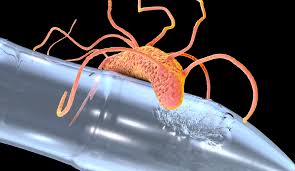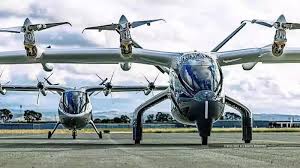Scientists Develop Plastic Eating Bacteria, Offering Hope for Waste Management
Scientists just cooked up these plastic eating bacteria. Yeah, you heard me. Little microscopic dudes scarfing down plastic like teenagers at an all you can eat pizza joint. Took ‘em long enough, honestly. We’ve been drowning in plastic trash since, what, the ‘70s? Someone had to step up.
They took this bug called Ideonella sakaiensis (don’t worry, I barely remember it either) and cranked it up a notch in the lab. Now these souped up bacteria chow down on PET plastic, the same junk clogging up your recycling bin and making you curse those impossible to open packages. Normally, this stuff hangs around for centuries. With these bacteria? We’re talking a couple of weeks, tops. Wild, right?
Dr. Priya Malhotra is the brains behind this whole operation, and she’s calling it a win for biotech. Letting bacteria do the dirty work could finally put a dent in the mountains of plastic choking up, well, literally everywhere. Oceans, landfills, maybe your neighbor’s lawn gnome collection.
How does it work? Basically, these bugs spit out special enzymes that shred plastic molecules like a blender on steroids. The plastic turns into stuff like ethylene glycol (which, side note, is in antifreeze, so maybe don’t drink it) and terephthalic acid. Then some other microscopic pals jump in and clean up the leftovers. It’s like a weirdly adorable clean up crew.
There’s a catch, though. These bacteria are kind of high maintenance. They want just the right temperature and pH; no random pond dumping allowed. For now, scientists have to babysit them in fancy labs or industrial plants. Getting them to survive out in the wild? Yeah, still working on that.
If it all pans out, this could totally flip the script on plastic waste. Plastics are everywhere, messing with wildlife, showing up in your sushi, and probably hanging out in your spleen by now. Having bacteria that can actually eat the stuff? That could turbocharge recycling and, who knows, maybe help us out of this environmental mess we’ve made.
Everyone’s jazzed: governments, green groups, and the big corporations who pretend to care about recycling. There’s talk of giant recycling centers where these bugs just go full Pac-Man on old plastic.
But let’s not get ahead of ourselves. Nobody’s tossing these bacteria into the wild just yet. What if they turn into little monsters and start chewing on stuff they’re not supposed to? Or mess with the local ecosystem? Scientists are running a ton of tests, praying for zero Jurassic Park moments. Plus, keeping these bacteria alive and hungry in giant tanks is, apparently, a whole drama on its own.
What’s next? They want to train these bugs to eat other plastics, polyethylene, polypropylene, and all the stuff that refuses to die. Imagine smart recycling centers, maybe even a kitchen trash can that’s basically a tiny bacteria farm. The future could be weird but kind of awesome.
Dr. Malhotra sums it up like this: the goal is to turn plastic trash into a goldmine. Add a pinch of science, some tech magic, and a little “let’s not ruin the planet,” and maybe just maybe we’ll dig ourselves out of this mess. Fingers crossed, seriously. We need this win.
So, yeah. Bacteria eat plastic. Who saw that coming? Not a silver bullet, but it’s a shot. If the scientists stick with it and the world doesn’t completely screw it up, maybe these little guys will end up as the unsung heroes, quietly munching on our garbage. Cleaner oceans, less plastic guilt, maybe a thankyou note from a sea turtle or two. Just don’t mess it up, okay? The next generation’s already got enough to complain about.
Science










